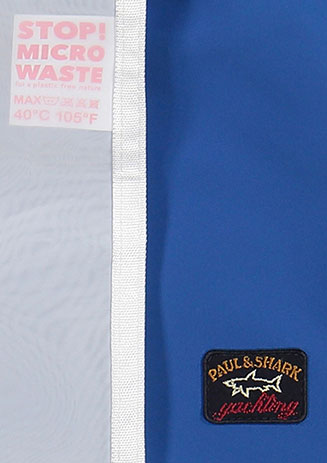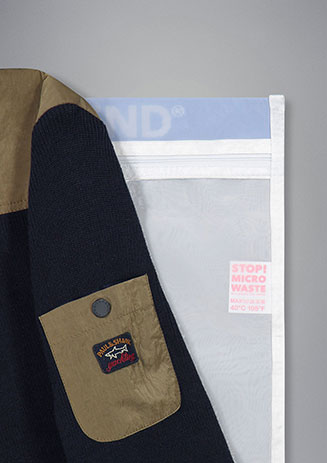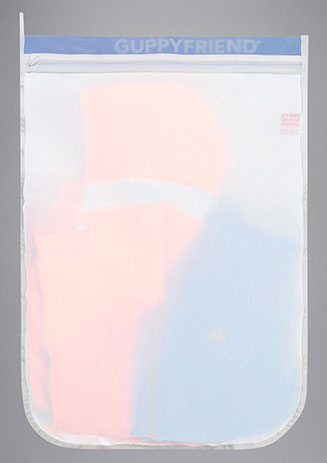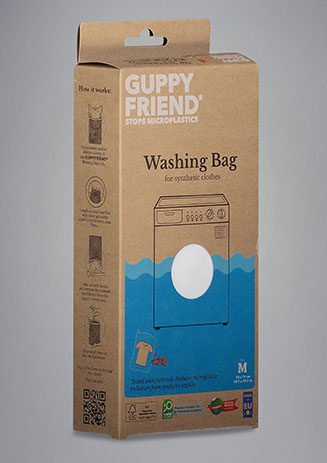GUPPYFRIEND® Washing Bag
STOP MICROPLASTICS
9,2 billion tons of plastic have been globally produced since 1950, that is equal to the weight of 1.600 Pyramid of Giza. 8 million tonnes of plastic waste end up in the ocean every year (1,4 Pyramid of Giza every year).
With each wash, countless plastic fibers from synthetic textiles are making their way from washing machines into rivers and oceans. Paul & Shark is committed to reduce and mitigate plastic pollution in our oceans and rivers tackling this environmental issue on two sides simultaneously.
- On consumer side, by providing the GUPPYFRIEND® Washing Bag that filters microplastics avoiding them to end up in oceans and rivers.
- On products side, by preferring recycled nylon and recycled PET from plastic trash recovered from the oceans. Discover our collections ECONYL® and SEAQUAL®.
The soft surface of the GUPPYFRIEND® Washing Bag results in less fiber breakage and thus extends your garments lifetime. The microfibers that break during washing are captured inside the bag. The bag itself does not lose any fibers. The GUPPYFRIEND® Washing Bag is entirely made of polyamide 6.6 and can be recycled with identical materials.
How it works:
1- Put synthetic textiles into the GUPPYFRIEND® Washing Bag.
2- Close the washing bag and put it in the washing machine. Add other, non-synthetic, textiles and wash as usual.
3- Take the textiles from the GUPPYFRIEND® Washing Bag while they’re still wet.
4- Remove the collected fibres from the inside of the filter fabric by hand and dispose of them in the residual waste.



